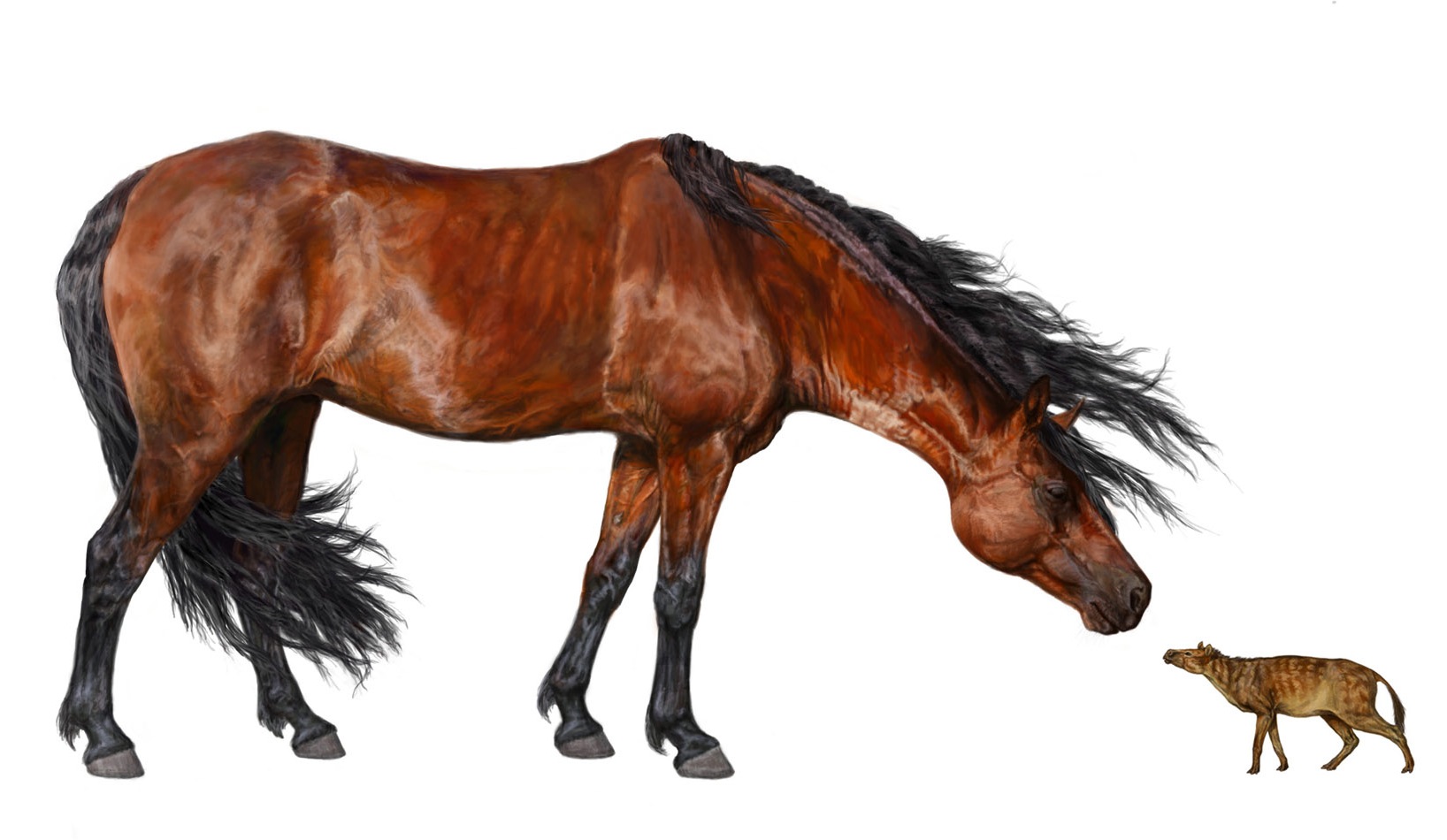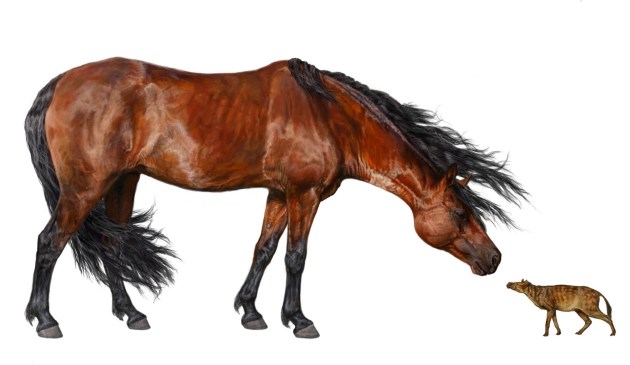After they first appeared in the fossil record, horses got smaller as a result of a warming planet, says a study just published in Science. Thing is, proto-horses weren’t that big to begin with — Sifrhippus, the first horse, only weighed 15 pounds — so by the time the climate was done with them, they’d shrunk down to 8.5 pounds, or about the size of Paris Hilton’s dog Tinkerbell.
“Horses started out small, about the size of a small dog like a miniature schnauzer,” said co-author Jonathan Bloch, associate curator of vertebrate paleontology at the Florida Museum of Natural History on the UF campus.
“What’s surprising is that after they first appeared, they then became even smaller and then dramatically increased in size, and that exactly corresponds to the global warming event, followed by cooling. It had been known that mammals were small during that time and that it was warm, but we hadn’t understood that temperature specifically was driving the evolution of body size.”
Later, as the planet cooled, horses “bulked up” back to 15 or so pounds. “When Jon and I started plotting oxygen data from the mass spectrometer, we could immediately see that the shifts in size of horses and temperature were mirror images of each other,” said lead author Ross Secord.
Looking at other species of mammals, about a third became “smaller or a lot smaller” as the planet warmed, during what’s known as the Paleocence-Eocene Thermal Maximum (or, in denialist circles, the One Bit of Paleolithic History We’ve Heard Of). That warming event, while extreme in the course of Earth’s history, was gradual compared to present warming, so it’s not clear that animals will have nearly as much opportunity to adapt their body size to higher temperatures. Also there’s the small matter of humans’ habit of messing up all of their habitat and/or eating them.




